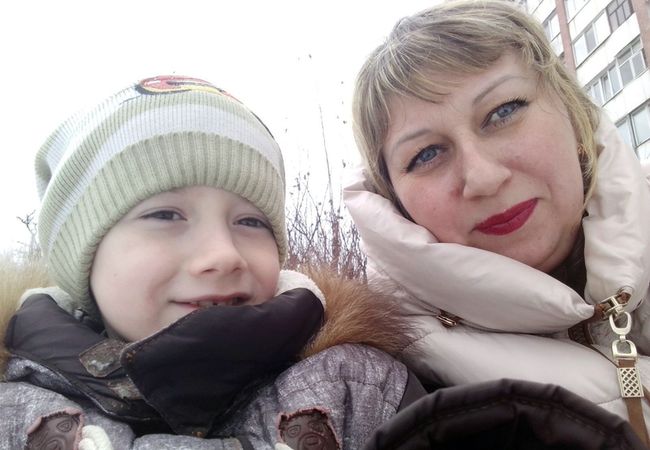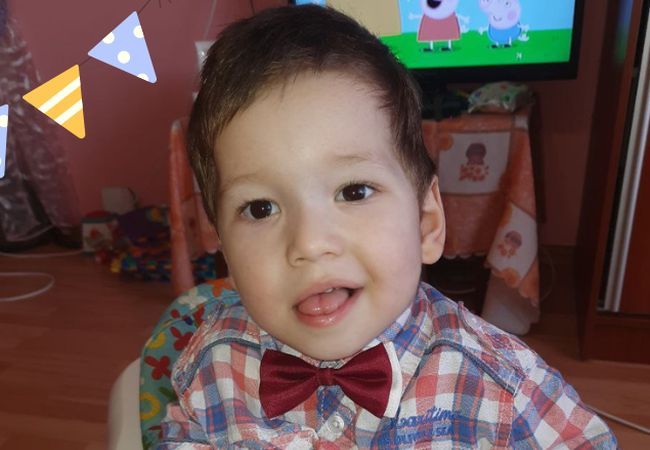
Hollee McGinnis, herself adopted more than 30 years ago, leads a seminar for New Haven-area adoptees. Mara Lavitt/Register
For these kids and adults, family is what you make of it.
"In my family, we’re all one race. I don’t see the distinction," said Jesse Gabbard, 22. "Your family is your family, no matter what they look like. Whether or not their skin tones match is irrelevant."
Jesse Gabbard, who is multi-racial, knows what he’s talking about. He has six brothers and sisters who are either black, Puerto Rican, Korean, Caucasian or a mix thereof.
The rainbow that is the Gabbard family of North Haven is one example of how adoptive families live and love across racial lines and how the children adapt to their new lives.
As the number of international adoptions increase in this country, adoption agencies and adoptive parents and kids are seeking out ways to make children feel comfortable with their new country, their old countries and most importantly, in their own skin.
Lutheran Social Services of New England of Rocky Hill, a statewide, licensed child-placing agency, has created a Post-Adoption Resource Center that offers discussions, educational and support programs, special events, clinical support and counseling services across the state. Lynn Gabbard, an adoption professional and the mother of seven adopted children, including Jesse Gabbard, is the director.
"It’s been my dream to start a center like this so that adoptive families, adopted adults and children and adoption professionals could be there to support each other," she said.
Thirty-two years ago, Lynn and Richard Gabbard were on the ground level of international adoptions, wanting to take in children who were already born and needed to have families. Their first child, Cori, was born in South Korea. "We got very involved in the adoption community and six more children came along," Lynn Gabbard said.
According to the Evan B. Donaldson Adoption Institute in New York, the number of intercountry adoptions has more than doubled in the past decade, with most children coming from China, Russia, Guatemala, South Korean and Ukraine.
There are an estimated 6 million adopted people of all ages living in the United States, at least 1.6 million of whom are under 18. Between 1971 and 2002, U.S. citizens adopted almost 300,000 children from abroad, according to the institute.
Learning from adopted adults, many of whom were brought here from South Korea in the 1950s, and from adoptive parents and adoption professionals, the adoption community has realized that a child’s heritage is not something that should be ignored, but celebrated.
"We have learned how really important it is that kids understand and feel good about their heritage, their race, their culture, and how critical it is to their self-esteem and identity development," Lynn Gabbard said.
On a recent weekday, Lutheran Social Services sponsored a program geared to making kids feel good about themselves, and for professionals and families to hear from adult adoptees about race, culture and identity formation.
Hollee McGinnis, 35, the political and operations director at the Donaldson Institute, was the facilitator. McGinnis was born in South Korea and was adopted by a family from Westchester County in New York when she was 3?.
"Every child who comes into a home comes with a history. It’s very important for us to realize they come with history and attachments," McGinnis said.
Young adoptees now have a larger community of people who are mentors and can relate to their experiences, she said. "Racially, looking different still exists but young kids who are growing up in a more diverse America have a much larger community of people who have lived a very similar experience," McGinnis said.
For example, they still have to answer a lot of questions and assumptions based on their race from people who challenge whether or not they’re American. Such tauntings may lead a child to question who they really are, especially when they reach adolescence and high school.
"Our society doesn’t see me as a McGinniss but as an Asian woman. Our attempt to address this kind of dichotomy has been to give children a lot of pride in their heritage," but it may not be enough, she said.
When a child is asked where they are really from, it poses challenges because they have to figure out whether the person wants to know where they live now or what country they are from.
"These are layers of questions that people who are not minority people don’t necessarily have to answer," McGinnis said.
So, when McGinniss met with some children from the New Haven area recently, she talked to them about sharing their experiences on who they are, rather than what they look like, and helping them integrate their race, their adoption and their family culture. "We have to think of these children in the wholeness of all that they are, and not just their race."
Lorial Crowder, 30, a New York resident who was adopted from the Philippines by a Hamden family when she was 5 years old, said post-adoption services are beneficial. She attended the workshop to help kids from 7 to 12 on how to voice who they are as individuals.
One of them is Iris Wade, 12, of Hamden. She said other kids treat her the same, though they have been curious about her heritage.
"Some kids thought I was from China," said Iris, who was born in Vietnam and was adopted by her mother, Susan Wade, when she was 8 months old.
By attending the workshop, Iris said she learned there are other kids besides herself who are adopted. "I like being adopted. It just sounds nice to be different," said Iris, a sixth-grader at the Foote School in New Haven, who is interested in many things.
"I might want to be a singer, artist, maybe a dancer, an author or a teacher of people who are blind," said Iris.
Susan Wade said her daughter is interested in learning more about Vietnam, and they’re hoping to find a tutor who can teach her the language.
At the workshop, "We talked about what makes us us and what other people say when you’re adopted," said Mia Hudd, 10, a daughter of Sue and Stephen Hudd of Hamden.
"Some people say, ‘Who’s your real mother?’ My real mother is the mother I live with now," said Mia, who was born in the Philippines. "I learned that if somebody is badmouthing you about how you were adopted, you should just walk away or say that you don’t feel like telling you that."
Mia, a fifth-grader at St. Rita School in Hamden, said it’s exciting to be adopted and to be from the Philippines.
"I go to culture camp every year and I get to see friends who are Phillipino, my ate (sisters) and kuya (brothers)," she said.
Her sister, Ellie, 13, said it’s great to have Mia around. "People sometimes ask if we’re sisters. It’s not a given."
Ellie said that it’s nice to have a sister from a different country. "I’ve gotten a lot of opportunities to learn about Filipino culture and food that I wouldn’t have if I didn’t have my sister in the family. I’m just grateful to have Mia. She’s as much a part of the family as anybody."
Sue Hudd said post-adoption services such as the ones provided by Lutheran Social Services are critical.
"When you adopt a child, it’s a lifelong process," Sue Hudd said. "What a great gift we’ve received. Our family is meant to be as it turned out for us. It’s our family."
Even though she was assimilated into her adopted family’s daily life, Crowder said her lack of a biological connection often made her feel uncomfortable, especially as an adolescent. "I spent a lot of time blaming my adoption for things. I felt out of my element for a long time. I wanted to be all-American. I didn’t want to be in the skin I was in," she said.
Members of the Chinese adoption community are starting to see teens and preteens having issues of their own, said Cara Cassella, director of the Connecticut office of China Adoption with Love Inc. in Old Saybrook.
Based in Brookline, Mass., the group educates adoptive parents about the Chinese culture, history and language prior to adoption, and has post-adoption support groups, said Cassella. The agency has placed 1,500 children in the last decade.
The group has pre- and post-adoption support and is starting to think about support groups for pre-adolescents and adolescents. "We’re just now seeing kids where issues of identity are starting to show up," but it’s tough to distinguish whether they’re about being adopted or being a teen-ager, Cassella said.
Some children in their system are also benefiting from a mentorship program, the Chinese Adopted Siblings Program, where children are matched with Asian students from Yale University.
"The goal is for kids to see other Asians in the United States who are successful, teaching them about the Chinese culture," Cassella said.
Crowder, for one, is still processing what it means to be adopted.
She said there is a need for more post-adoption services for both the adoptive family and adoptees, because of questions that will arise about race, culture and identity. "All parties need to be more equipped to have open discussions about it," she said.
While the Korean adoption community has more than 50 years of experience in educating and supporting families, the Filipino adoption community has only recently begun to explore the idea of offering culture and heritage camps such as Filipino Heritage Camp in Colorado and Camp Mabuhay in Hartford, now going into its third year, Crowder said.
Two years ago, Crowder and a fellow Filipina adoptee from Danbury co-founded the Filipino Adoptees Network, www.filipino-adoptees-network.org.
"My vision for the cyber community was to provide a space for other Filipino adoptees to share their stories, meet folks with similiar backgrounds and to include resources about Filipino culture and heritage," Crowder said.
Crowder said that international adoption has created thousands of blended families all over the world.
"Many children have come from war-torn countries and impoverished families, though others are from better circumstances. The point is, if there are families willing to bring another child into their life through adoption," Crowder said, "their responsibilities go beyond parenting but to be fully equipped — to have a tool box — to have open discussion about the many facets of international adoption."
Ann DeMatteo can be reached at adematteo[at]nhregister.com or 789-5716.



